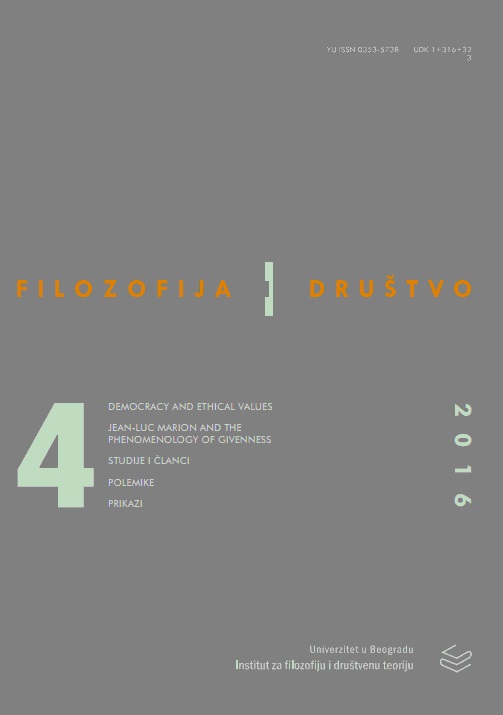Second-order Impartiality and Public Sphere
Second-order Impartiality and Public Sphere
Author(s): Michal SládečekSubject(s): Political Philosophy
Published by: Institut za filozofiju i društvenu teoriju
Keywords: Brian Barry; first- and second-order impartiality; justice; moral justification; public sphere
Summary/Abstract: In the first part of the text the distinction between first- and second-order impartiality, along with Brian Barry’s thorough elaboration of their characteristics and the differences between them, is examined. While the former impartiality is related to non-favoring fellow-persons in everyday occasions, the latter is manifested in the institutional structure of society and its political and public morality. In the second part of the article, the concept of public impartiality is introduced through analysis of two examples. In the first example, a Caledonian Club with its exclusive membership is considered as a form of association which is partial, but nevertheless morally acceptable. In the second example, the so-called Heinz dilemma has been reconsidered and the author points to some flaws in Barry’s interpretation, arguing that Heinz’s right of giving advantage to his wife’s life over property rights can be recognized through mitigating circumstances, and this partiality can be appreciated in the public sphere. Thus, public impartiality imposes limits to the restrictiveness and rigidity of political impartiality implied in second-order morality.
Journal: Filozofija i društvo
- Issue Year: 27/2016
- Issue No: 4
- Page Range: 757-771
- Page Count: 15
- Language: English

